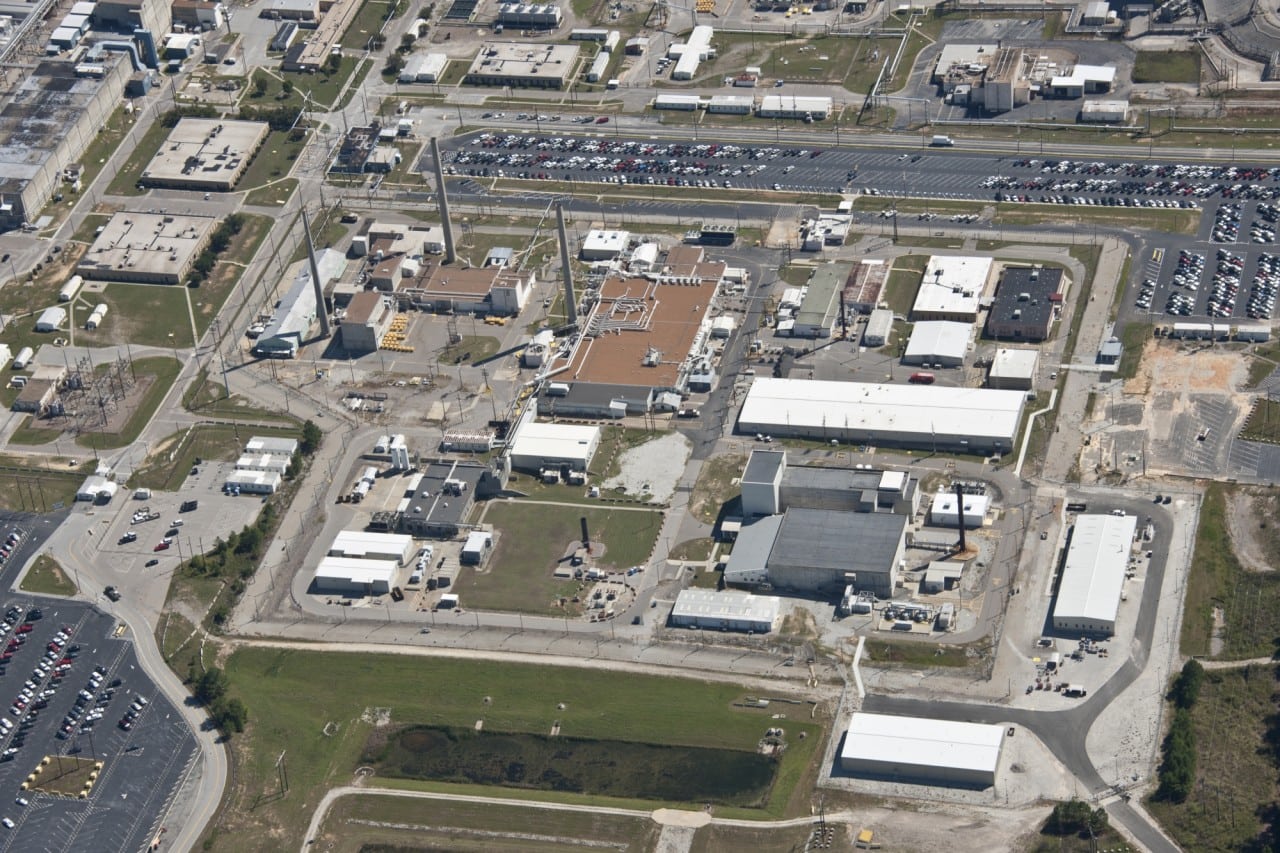
The U.S. Energy Department failed to “reasonably evaluate the viability” of the technical approach put forth by the winning bidder for a $4.7 billion contract for liquid waste services at the Savannah River Site in South Carolina, according to a redacted version of the Government Accountability Office ruling on protests against the procurement award.
The GAO announced earlier this month it had upheld one of two protests against the October contract award to Savannah River EcoManagement, but previously had not released details of its ruling. Weapons Complex Monitor obtained a copy of the 15-page document on Thursday, which was then posted on the GAO website Friday.
The Savannah River Site in total has stored 36 million gallons of radioactive nuclear waste in 43 underground storage tanks. The RFP sought a contractor to process the waste and convert it into more stable forms while closing some of the tanks, GAO noted.
Savannah River EcoManagement’s technical approach would have significantly reduced the amount of waste to be processed and resulted in a “significant technical advantage” for the contractor, the GAO said.
The document’s redactions make it difficult to parse the details. The disputed technical approach apparently revolves around what formula the winning bidder would use to first dilute the 36 million gallons of tank waste and “create” an additional amount through dilution of the “cake waste,” according to the GAO finding.
Savannah River EcoManagement, a joint venture of BWXT Technical Services Group, Bechtel National, and Honeywell International, was awarded the 10-year contract on Oct. 12 after submitting the low bid of $4.7 billion. Fluor Westinghouse Liquid Waste Services was the second-lowest bidder at roughly $5.5 billion and Savannah River Technology & Remediation, comprised of AECOM and CH2M, submitted the highest bid at just under $6 billion.
Both of the losing teams submitted protests to the GAO in October. The congressional auditing agency denied the protest from the Fluor-Westinghouse team but sustained the AECOM-CH2M protest.
The new GAO document lays out the reasoning for both decisions. The agency said Fluor Westinghouse Liquid Waste Services’ arguments were either unconvincing, not filed in time, or rejected on procedural grounds.
The AECOM-CH2M protest argued the language of the request for proposals required DOE to weigh the viability of the technical approach put forth by the bidders. The partnership contended there was little track record to support the winner’s technical approach.
In its evaluation of the three proposals, DOE’s Office of Environmental Management graded the technical approach for all the teams as “outstanding.” The department said there was “high level confidence” in the past performance of the three bidding teams. Savannah River Technology was the only team deemed “outstanding” by DOE for both its key personnel/organization category and its experience category. The other two bidding teams were listed as “good” in those areas.
The GAO said there is no evidence showing DOE sufficiently evaluated Savannah River EcoManagement’s technical approach during its bid review process. The only evidence in the record is an affidavit submitted by DOE from the department’s technical evaluation board (TEB) during the protest phase, GAO said. But the technical affidavit voiced less than full-throated support for the Savannah River EcoManagement approach, according to the GAO.
“In other words, the TEB chairman himself concludes that the test report – which provides the sole underlying scientific support for SRE’s never-before-tried technical approach – provides, at best, uncertain evidence to demonstrate its viability,” the finding says.
“We recommend that the agency, at a minimum, reevaluate proposals in a manner consistent with our findings above, and also give consideration to reopening discussions to afford SRE an opportunity to revise its proposal” to address technical concerns, the GAO said.
DOE needs to reach a firm conclusion about the viability of the winning bidder’s proposed technical approach before final contract decisions are made, according to the authors of the decision document.
The Energy Department typically does not comment on procurement decisions and did not respond to a request for comment Thursday. A BWXT spokesperson also declined comment Thursday. AECOM had previously said it was pleased that its protest brought with partner CH2M had been sustained.
Savannah River Technology and Savannah River EcoManagement each have some of the team members from the incumbent liquid waste manager, Savannah River Remediation (SRR), which is comprised of AECOM, Bechtel National, CH2M, and BWX Technologies. In December, DOE temporarily extended the current contract through May 31, 2018.